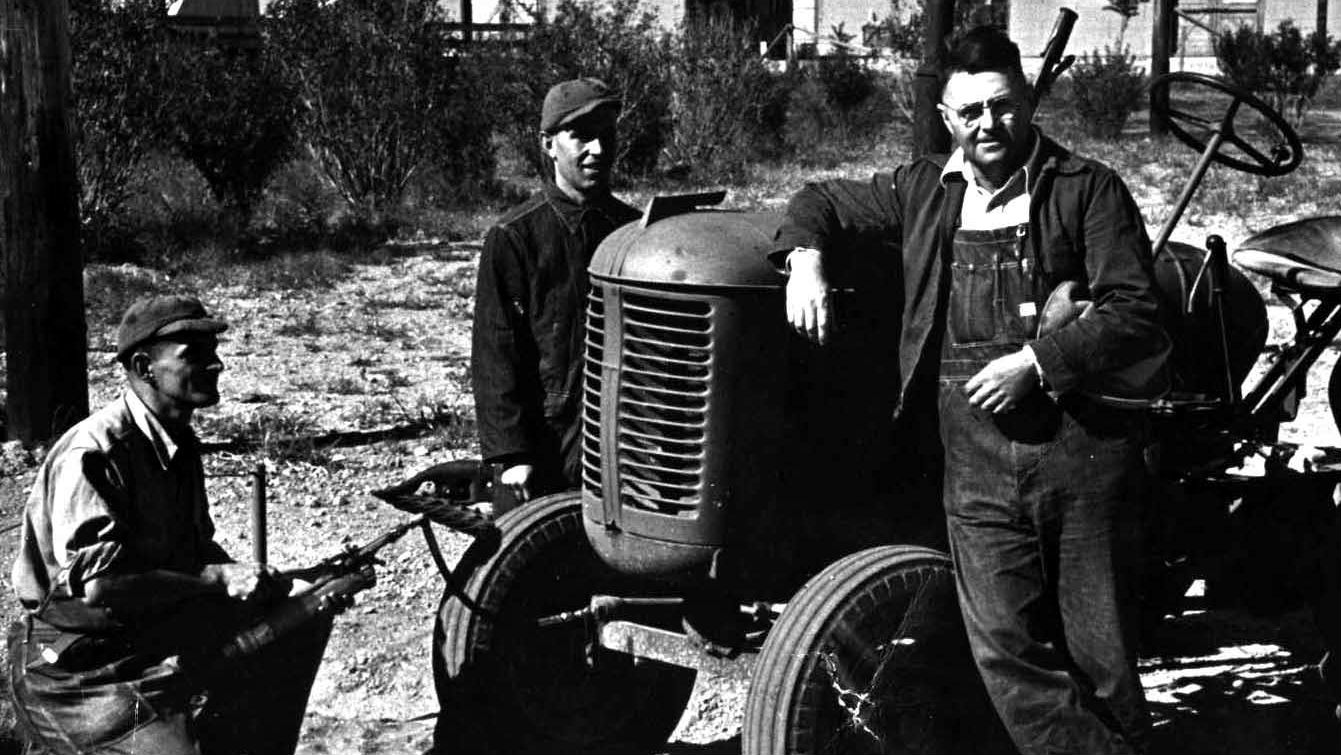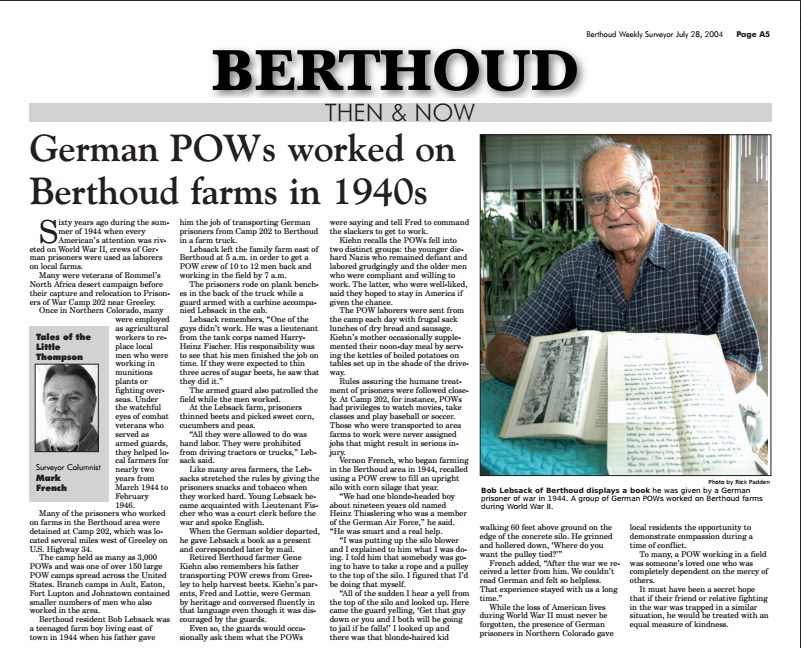
The 1944 sugar beet crop in northern Colorado was a record one. But the more noteworthy aspect of that year's harvest isn't the beets, but the workers that pulled them up.
With many of the area’s men fighting overseas in World War II battlefields, farmers enlisted German prisoners of war to help with the harvest.
Camp 202 near Greeley issued strict guidelines to farmers using POW labor in their fields:
Despite these regulations, fraternizing between residents and imprisoned soldiers occurred with regularity. Those relationships inspired Loveland resident Rick Padden, 63, to write a play about this little-known piece of Colorado history. He first heard of it while working as the editor-in-chief at the Berthoud Weekly Surveyor, the town’s weekly newspaper.

Mark French, a historian based in the small town, had written an article about Bob Lebsack, a resident who remembered driving prisoners from Camp 202 to the fields.
Padden felt Lebsack’s narrative would make for great fodder for the stage.
“You’ve got circumstances here that aren’t common in a small town,” Padden says. “So there was conflict, there was emotion, and eventually there was compassion.”
His play “Beets,” running now through Feb. 8 at the Aurora Fox Theater, is a dramatic depiction of the events that transpired in Berthoud from 1944 to 1945 when POWs from Camp 202, which housed almost 3,000 of the 400,000 German soldiers brought to American soil, worked on northern Colorado sugar beet farms.
“Beets” follows Fred Hunt, an English beet farmer living in Berthoud with his wife and daughter while his son is in Belgium fighting Axis troupes. Hunt is at first reluctant to use POW labor in his field, but eventually agrees. One day, a young German soldier sees Hunt’s daughter, Anna, while working in the fields and waves to her. This sparks a distant, forbidden love affair.
After extensive research and interviews, Padden wrote the play in 21 days. The drama weaves in historical research, including the camp-issued guidelines and letters from soldiers.
“It gives a level of genuineness to the dialogue because it’s real language from real young men during the war,” Padden says of his decision to incorporate the historical texts.
Wartime music
Music also plays a prominent role in Padden’s “Beets.”
Padden draws upon the famous war song “Lili Marlene,” about a woman waiting under the lamppost on a pier for her man to return from combat.
“It was a song that was popular on both sides of the Atlantic, with both German and Allied soldiers,” Padden says.
In one scene of “Beets,” the mother invites all of the POWs into the farmhouse for boiled potatoes. Anna, a skilled pianist, begins to play “Lili Marlene,” which unites the entire cast in song and dance.
Click the audio above to listen to CPR's Chloe Veltman interviewing playwright Rick Padden as well as stories from residents who experienced these events in northern Colorado.








